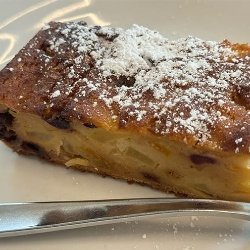In 2021, the top persimmon producers in the world were 1st China, then Korea, Japan, and Azerbaijan, followed by Brazil in 5th place. Brazil exports persimmons mainly to the Netherlands, Germany, the UK, and the US.

The 4 types of persimmons you usually see in supermarkets are:
1. Ramo forte – This is an astringent type of persimmon, so wait until the fruit ripens and softens. The skin is thin and the flesh is soft and reddish.

2. Fuyu - The fruit is firm, crisp, and has a rich flavor. The skin is firm. It is large enough to fill the palm of your hand.

3. Guiombo – The characteristics are its orange color and slightly elongated shape. This is a firm persimmon.

4. Kioto (Chocolate) - The name apparently comes from the fact that this persimmon turns a chocolate color. The fruit is firm, sweet, and slightly elongated.

Apparently, these types of persimmon are mostly exported.
Other types of persimmon include Caqui taubate, Hachiya, Rubi, Kaoru, and Pomelo.
Persimmons are grown mainly in southern Brazil and in the state of São Paulo, where it is grown in the cities of Itatiba, Piedade, and Mogi das Cruzes.
In the cities of Piedade and Itatiba, persimmon festivals are held in April and May. Not only can you buy persimmons, but also local vegetables, flowers, plants, and Agaricus mushrooms. They also exhibit agricultural products from the horticultural show. As well as Brazilian food, there are yakisoba and takoyaki stalls at festival venues. Plus, they stage musical and Japanese drum shows.
When I went to Piedade on holiday a few years ago, a local told me that they had persimmon picking, so I headed to a persimmon farm. As well as having fun picking persimmons, you could buy them directly from the farm. And being able to talk with the kind and cheerful people working at the farm was also enjoyable.
In Brazil, there are a number of recipes that use persimmons, like persimmon jam, persimmon mousse, persimmon ice cream, persimmon tart, persimmon juice, and salads with persimmon. But these recipes are for making by hand at home, rather than getting them from a shop. Would you like to try making any of these desserts?
I like Fuyu persimmons for their crisp texture, but scooping out the pulpy ripe Ramo Forte persimmons with a spoon also makes for delicious eating, too.
Come to think of it, I heard there’s a restaurant that has recently been using persimmon in a sauce that goes with meat dishes. With that sweetness, it would be a delicious sauce.
Persimmon is a fruit with high nutritional value because it contains lots of different nutrients like vitamins A, C, and E, potassium, beta-carotene, tannins, and dietary fiber, but they are high in sugar and calories, so the rule of thumb is to have one a day.
In my childhood, my mother often used to buy dried persimmons. They used to be made by people of Japanese descent. Brazilians aren’t in the habit of eating dried persimmons, so even today they’re only sold at Asian markets and Japanese supermarkets.




















































